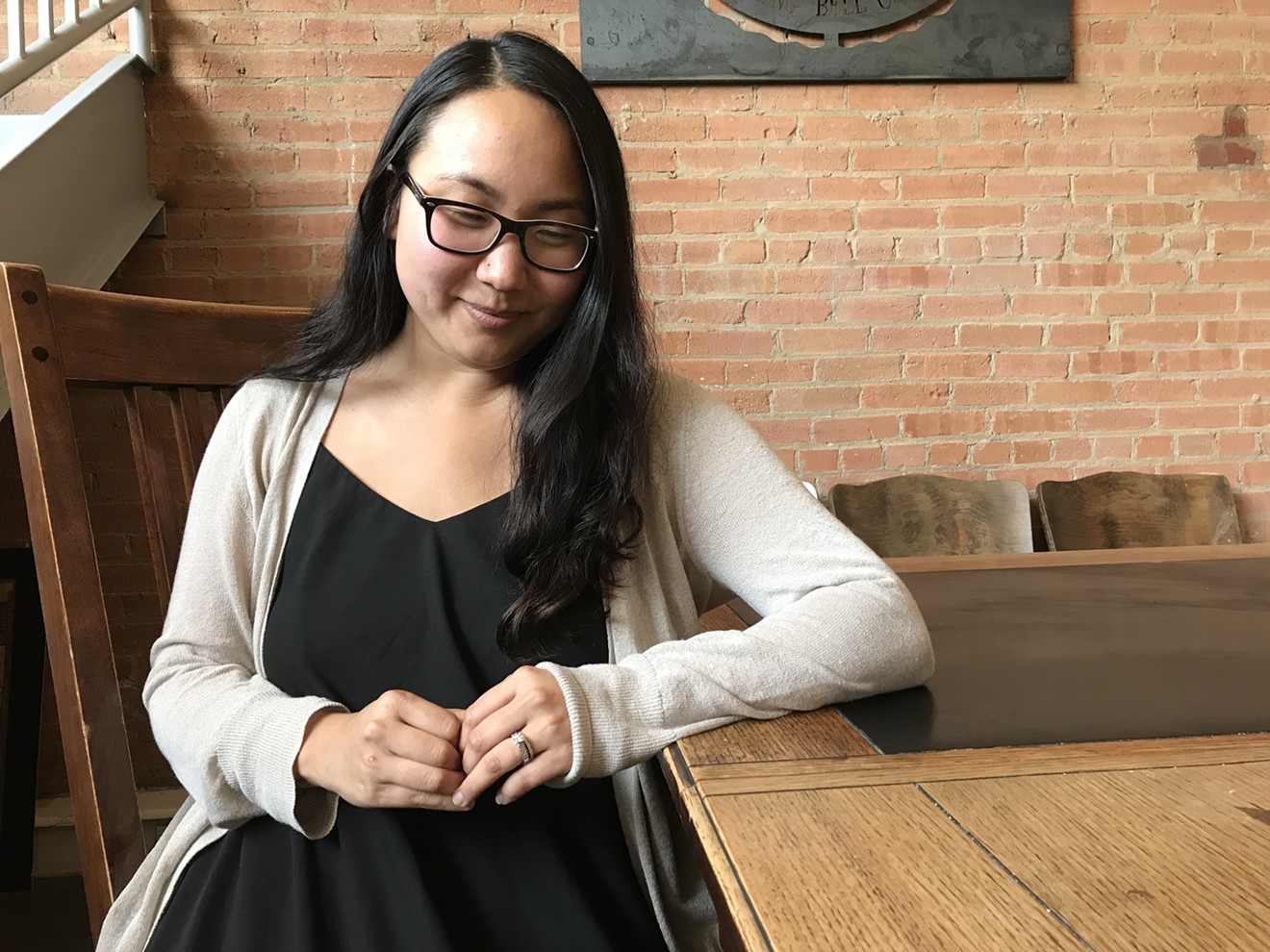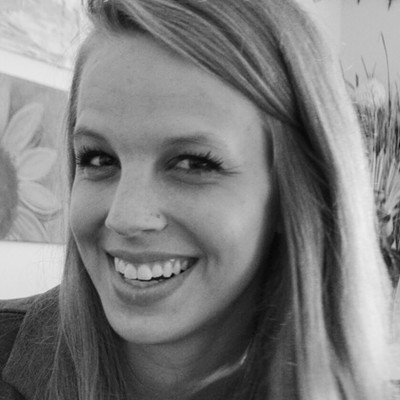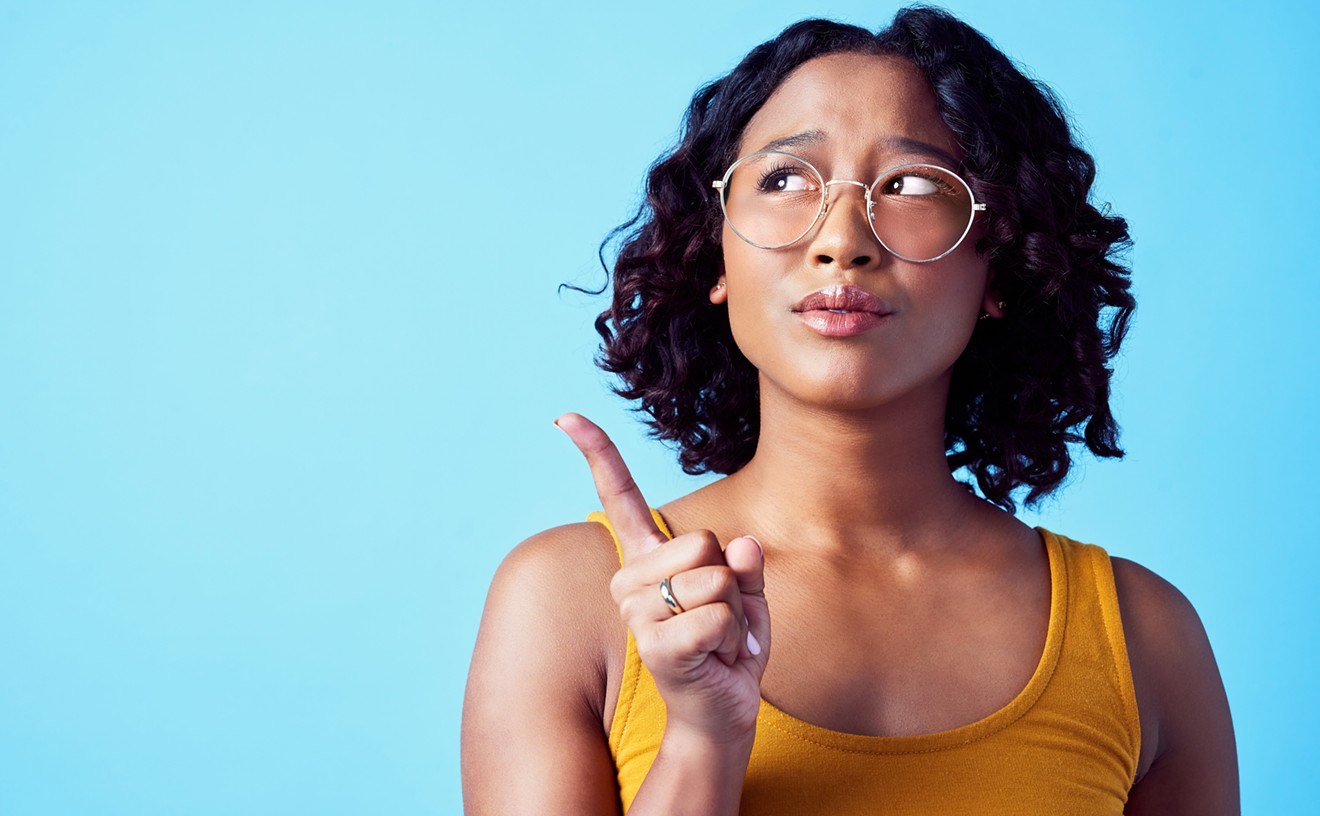Stephanie Drenka never felt the need to weigh in on the abortion debate – until now.
Drenka is a Korean adoptee who grew up in Southlake and now lives in Dallas. She’s a writer and activist who predominantly focuses her attention on writing about adoption and the Asian American community, while elevating the voices of people from all underrepresented communities through her online publication, VISIBLE Magazine.
Drenka is also pro-choice, but until recently she didn’t feel like she had a lot to say on that topic. Now, however, as she watches women’s rights to a legal abortion come under fire in the United States, and as she continuously sees people pointing to adoption as the solution, she has changed her mind.
“If adoption was an easy fix, the issue would have been fixed by now,” Drenka says. “There’s a reason that we’re still having this conversation — because it isn’t.”
Last week Drenka posted an op-ed in the Huffington Post titled “I’m Adopted and Pro-Choice. Stop Using My Story for the Anti-Abortion Agenda,” in which she shares her story about finding and meeting her birth family and how that helped solidify in her mind that access to abortion should be a right for every woman.
“I get frustrated because people say, ‘There are so many unwanted babies. Aren’t you grateful that you weren’t aborted?’” Drenka says. “And I’m here saying, no; I would have wanted my birth mother to have lived the best life that she could. If I wasn’t here, then I wasn’t meant to be here. And I’m saying this as the ‘unwanted baby’ that they’re talking about and they’re not listening.”
That’s why Drenka spends so much time and energy writing about adoption on her blog, stephaniedrenka.com, among other places.
“Storytelling has been a driving factor for me because I think the only way we can get past some of these issues is empathy and being willing to put yourself in someone else’s shoes,” she says. “That’s why I choose to be vulnerable about my story.”
“If adoption was an easy fix, the issue would have been fixed by now.” — Stephanie Drenka
tweet this
Drenka was adopted from Korea at 3 months old. Growing up in Southlake, Drenka says she didn’t think much about her adoption or Korean culture. “But deep down I knew that there was always a piece of me that felt …” she pauses to consider her feelings. “I would describe it as sort of a void or a hole. There were all these unanswered questions.”
It wasn’t until after Drenka attended DePaul University in Chicago, where she minored in Asian American studies and got involved in several Asian American organizations, that she even considered the possibility of searching for her birth family.
After graduation, Drenka was invited to Korea by the Overseas Korea Foundation, and she decided to reach out to her adoption agency while she was there.
“One of the most memorable moments was walking through the nursery,” she says. “There were two rooms on either side filled with babies in their beds, just crying constantly. There were two volunteers in the rooms and they could only hold one baby at a time. Realizing that was me at some point was kind of a jolting experiencing.”
After the tour a social worker went through Drenka’s file with her. She thought she already knew all the information in her file, but she found out then that she has two older sisters.
“I have always wanted a sister,” she says. “If I was on the other end and I had a sister I didn’t know about, I would surely want to meet them.”
Drenka told the social worker that she wanted to try to contact her birth family, but legally the agency could only send a telegram to the last known address. They sent several telegrams over the years, and Drenka even went on a Korean TV show in hopes that someone might recognize her.
“I tried my last attempt when I got engaged. I’d always wanted to find them before I got married," Drenka says of her biological family. "It just felt like something they should know.” After sending yet another unsuccessful telegram, the social worker broke protocol and reached out to Drenka’s sister directly.
Drenka soon received news that her birth family wanted to meet her. Her birth mother and sisters sent letters, through which Drenka found out that she also has a younger brother. Drenka flew to Korea to meet her birth family. They met at the agency and then went to Drenka’s grandmother’s house in Andong, where Drenka was born. They only had an interpreter for the first day, so for the rest of the week, the family had to communicate through online translation apps.
“We tried to get all the storytelling out of the way at the beginning,” Drenka says, explaining how she learned the truth about her adoption. She had originally been told that her birth father caused a traffic accident while he was driving a taxi and they couldn’t afford to raise her, so they released her for adoption. The truth was much more painful.
“What happened was they had two daughters and my birth father by that point had a mistress who was living with them, and he was not interested in the family at all,” Drenka says. “When he found out that I was going to be another daughter, he coerced my birth mother and told her adoption would be for the best.”
But it wasn’t a happily-ever-after adoption story for Drenka’s birth mother.
“She was so devastated and traumatized from giving birth, holding me and then having to give me up, and they were already so unhappy in their marriage at that point,” Drenka says. “They ended up splitting up.”
In the split, Drenka’s birth father insisted on taking one daughter but not the other. Drenka’s birth mother eventually got back together with her husband so that her daughters could be together, and they had Drenka’s brother.
Drenka’s birth mother wasn’t able to look for her until Drenka’s birth father passed away in 2004 from complications of a drug addiction.
“They immediately as a family started looking for me as soon as my birth father passed away, but he had taken care of all the arrangements,” she says. “They didn’t have any paperwork or anything, so there was nothing they could do. They were just hoping I would find them.”
Their wishes were fulfilled, but their reunion was bittersweet. “I expected my birth mother to be excited and to want to get to know me, but she would hold back and just observe me with my sisters and my brother,” Drenka says. “She wouldn’t look me in the eyes. She would keep her head down and she’d keep coming up to me and saying, ‘I’m sorry.’ I just kept saying, ‘It’s OK, I’m OK.’”
Drenka has always been liberal and drawn to social justice issues. “So being pro-choice was always kind of my default,” she explains. But, of course, this was different. This was personal.
“When I was there with them, just seeing the pain that my birth mother had gone through in giving me up for adoption, she told the interpreter that after having my brother she didn’t want to go through that again,” Drenka says.

Stephanie Drenka, whose Korean name was Kyeong-Seon, on Wollyeongo Bridge in Andong with her sisters, Kyeong-Mi (left) and Kyeong-Hee (right).
Stephanie Drenka
Drenka hopes that by sharing her story she can illustrate that adoption isn’t a one-size-fits-all Band-Aid that can be slapped over the abortion issue as a perfect solution, and she has received plenty of criticism for it.
“People will come back with, ‘Well you should be glad you weren’t aborted,’” Drenka says. “They act like that’s the end of the conversation, but to me it’s obvious they don’t care to know any of the intricacies of the issue; they just want to be right.”
Other people accuse Drenka of being anti-adoption. “I am not anti-adoption,” she insists. “I saw the babies crying in the nursery. I know that there are a lot of problems that adoption tries to fix, but we have to address that adoption for infants and for children is a trauma. It’s a loss.”
Once she started writing and speaking about adoption, Drenka quickly found that she isn’t alone.
“Now we have a generation of adoptees who are adults and who have gone through the trauma and they’ve worked through it,” she says. “They’re trying to heal and they’re starting to speak out to say, ‘This wasn’t my story. It wasn’t all just happily-ever-after.’ So my activism has been around elevating the voices of adoptees,” she points out. Because false altruism isn’t enough. Not in this conversation.
“What I fight for, more than just being pro-choice, is listening to people’s lived experiences to learn about these really complex issues and life choices before you make a judgment about it,” she says.












